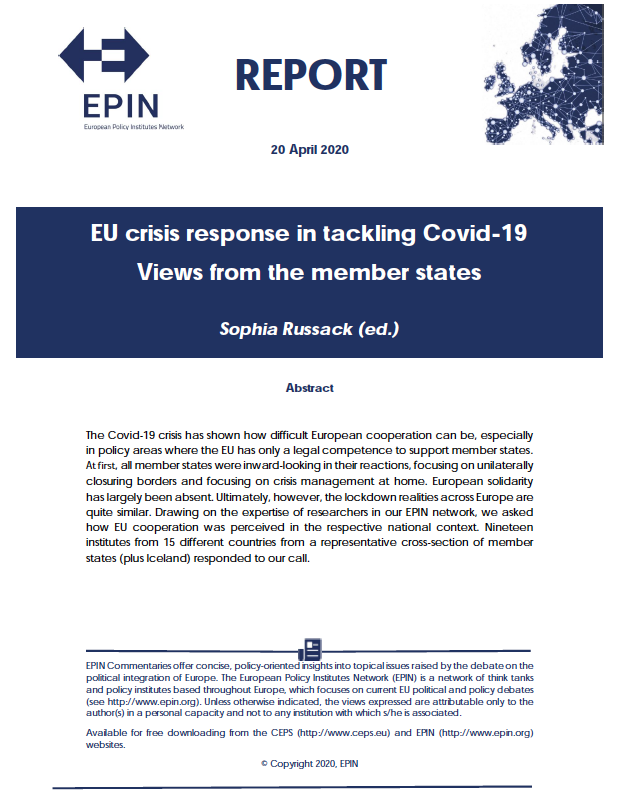Germany initially turned inward when the number of infections grew rapidly in early March 2020. Finding a coordinated domestic response to the health crisis was enough of a challenge, given the country’s highly devolved system of governance. Berlin realized the far-reaching implications of Covid-19 for the cohesion of the EU rather slowly and is now trying to shift gears.
Like certain other member states, Berlin went ahead unilaterally with its first crisis response: it introduced its own emergency measures and temporarily closed the borders with some of its neighbours without coordinating at the European level.
Yet, in the eyes of some European partners and the European Commission, Germany went too far when it started to ban the export of face masks and other protective equipment. Europe’s South in particular was painfully reminded of past crises, which exposed Berlin to accusations of a lack of solidarity. This perception was reinforced when China returned the favour of European support by sending face masks to Italy.
Since then, Berlin has tried to control the damage: it reversed its initial decision on exports of medical equipment and invested much more to support European partners in tackling the health crisis, i.e. sending medical equipment and ventilators, accepting Covid-19 patients from neighboring countries, and evacuating thousands of EU-citizens from abroad.
Yet this is the minimum of solidarity Germany can show. Unprecedented efforts are called for to cope with all the implications of Covid-19. Berlin acknowledged that the pace of European coordination and action had been slow at first. With the coordination of the Covid-19 crisis management now mainly in the hands of the European Council, and with the EU presidency just around the corner, Germany has an even greater responsibility to navigate the EU safely through this unprecedented crisis.

